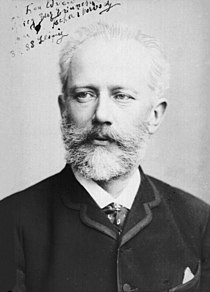| Ballets by Pyotr Ilyich Tchaikovsky |
|---|
 |
|
| List of all compositions |
The Nutcracker (Russian: Щелкунчик[a], romanized: Shchelkunchik, pronounced [ɕːɪɫˈkunʲt͡ɕɪk] ), Op. 71, is an 1892 two-act classical ballet (conceived as a ballet-féerie; Russian: балет-феерия, romanized: balet-feyeriya) by Pyotr Ilyich Tchaikovsky, set on Christmas Eve at the foot of a Christmas tree in a child's imagination. The plot is an adaptation of Alexandre Dumas' 1844 short story The Nutcracker, itself a retelling of E. T. A. Hoffmann's 1816 short story The Nutcracker and the Mouse King. The ballet's first choreographer was Marius Petipa, with whom Tchaikovsky had worked three years earlier on The Sleeping Beauty, assisted by Lev Ivanov. Although the complete and staged The Nutcracker ballet was not initially as successful as the 20-minute Nutcracker Suite that Tchaikovsky had premiered nine months earlier, it became popular in later years.
Since the late 1960s, The Nutcracker has been danced by many ballet companies, especially in North America.[1] Major American ballet companies generate around 40% of their annual ticket revenues from performances of the ballet.[2][3] Its score has been used in several film adaptations of Hoffmann's story.
Tchaikovsky's score has become one of his most famous compositions. Among other things, the score is noted for its use of the celesta, an instrument the composer had already employed in his much lesser known symphonic ballad The Voyevoda (1891).
Cite error: There are <ref group=lower-alpha> tags or {{efn}} templates on this page, but the references will not show without a {{reflist|group=lower-alpha}} template or {{notelist}} template (see the help page).
- ^ Fisher, J. (2003). Nutcracker Nation: How an Old World Ballet Became a Christmas Tradition in the New World. New Haven: Yale University Press.
- ^ Agovino, Theresa (23 December 2013). "The Nutcracker brings big bucks to ballet companies". Crain's New York Business. Retrieved 3 November 2017.
- ^ Wakin, Daniel J. (30 November 2009). "Coming Next Year: Nutcracker Competition". The New York Times.